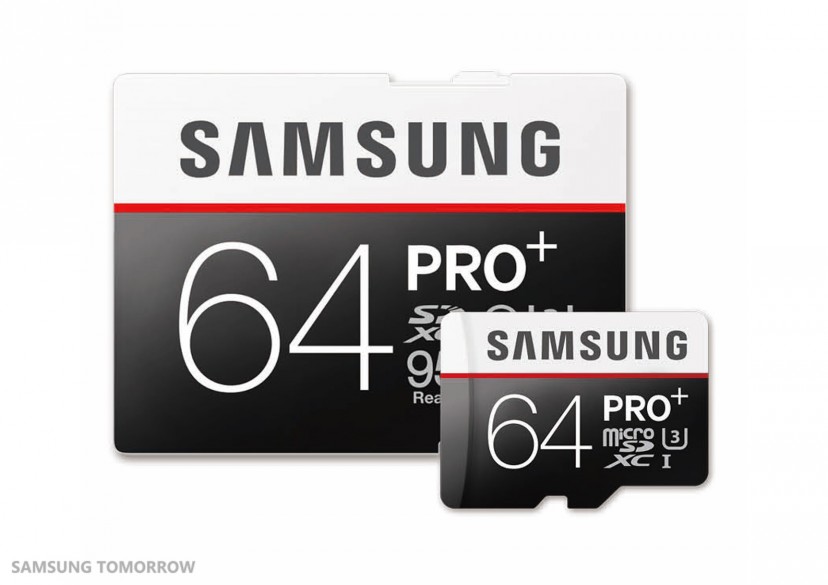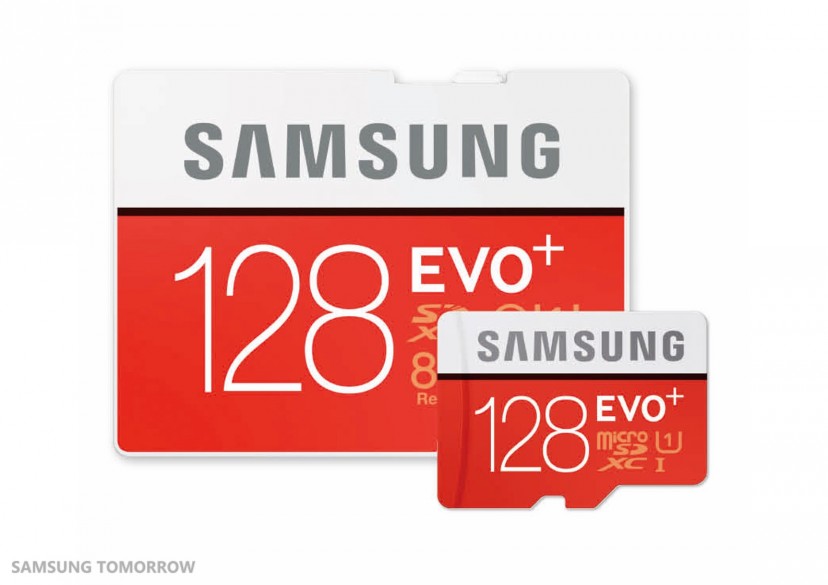Samsung Unveils SD, MicroSD Cards That Can Record 4K UHD Video
Samsung unveiled its next-generation EVO, EVO Plus, PRO and PRO Plus SD and microSD cards, which significantly improve the performance of their predecessors. The PRO series is now capable of supporting the speeds necessary for transferring and recording 4K UHD content, which should be a great benefit to consumers looking to record 4K video on their high-end smartphones or on their DSLRs.
Samsung announced that it will launch the PRO and PRO Plus SD and microSD cards with 32 GB and 64 GB options. Samsung claimed that its PRO Plus series can read data at up to 95 MB/s and write at up to 90 MB/s.
Users can store up to 110 minutes of 4K UHD video or 490 minutes of 1080p video on the 64 GB version. The PRO and PRO Plus cards satisfy the UHS-I Speed Class 3 (U3) as well as the Speed Class 10 levels of performance.
The EVO and EVO Plus cards have only slightly lower read speeds of 80 MB/s and significantly smaller write speeds of only 20 MB/s. However, they'll likely sell at an appropriate (lower) price point as well. These cards provide the UHS-I Speed Class 1 (U1) and Speed Class 10 performance.
Because of the much lower write speeds, the EVO-series can currently only support transferring and recording of 1080p video. The upside is that Samsung will offer 32 GB, 64 GB and 128 GB EVO Plus variants, which can store a maximum of 10,940 photos, 30,670 songs, or 980 minutes of Full HD video recording.
The difference between the basic versions and the Plus versions of the SD and microSD series is that the Plus versions come with five protection features, which include protection against water damage, temperature, shock, X-ray and magnetism, therefore making the cards more resilient. They could, for instance, be more suitable for "rugged" or waterproof phones such as the ones Samsung and Sony are selling. Both Plus series can withstand up to 72 hours of submersion under seawater. Samsung claimed that represents a 48-hour improvement over existing products.
All card series are guaranteed to survive operating temperatures from -25°C to 85°C (-13°F to 185°F) and non-operating temperatures from -40°C to 85°C (-40°F to 185°F).
Get Tom's Hardware's best news and in-depth reviews, straight to your inbox.
Samsung will offer the new microSD cards starting this month, while their SD equivalents will ship at a later date.
Follow us @tomshardware, on Facebook and on Google+.
Lucian Armasu is a Contributing Writer for Tom's Hardware US. He covers software news and the issues surrounding privacy and security.
-
soldier44 But none of them will work in their Galaxy S6 cause they took that option away pfft.Reply -
ammaross ReplyBut none of them will work in their Galaxy S6 cause they took that option away pfft.
Yep. Would have been a great shoe-in to support U3 on the S6 so you could do continual 4K recording rather than the 5min bursts they currently allow. -
alexluther74 These new cards will at least help Samsung's competitor's phones to shoot 4K, those with SD slots.Reply -
Alex Atkin UK ReplyYep. Would have been a great shoe-in to support U3 on the S6 so you could do continual 4K recording rather than the 5min bursts they currently allow.
The 5 minute clips are nothing to do with the memory speed, its supposed to be issues with CPUs overheating.
Its a bit confusing actually seeing as you can keep recording 5 minute clips indefinitely, does a second or two of inactivity REALLY allow the CPU to stay significantly cooler?
Its also puzzling that the Note 4 suffers the same issue as the Note 3. I was really disappointed to find the 5 minute limit remained when I upgraded.
I also don't understand why Android (or at least Samsung) limits video recording length to the 4GB FAT32 filesize limit. Is it really that hard to dynamically start on a new file once you reached the file size limit? -
McSpiffy Nothing new here. I just ordered a SanDisk 64GB Extreme PRO UHS-I microSDXC Memory Card (U3, Class 10). Max. Read Speed: 95 MB/sReply
Max. Write Speed: 90 MB/s. Its just Samsung trying to catch up in the market place. -
chrissy4605 I am a professional photographer and I only use the high end sdxc cards in my camera. In a year they will have terabyte cards for 4k.Reply

